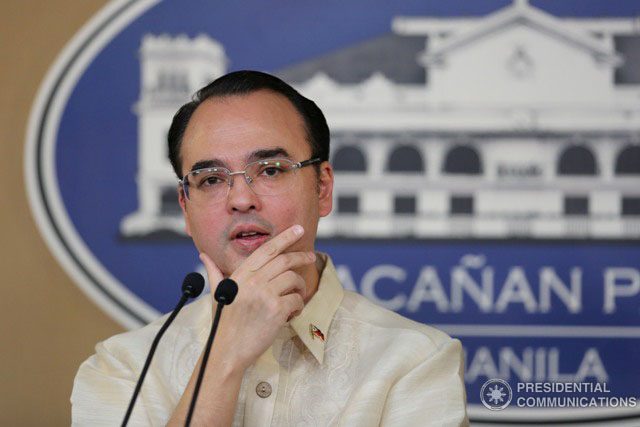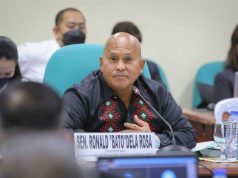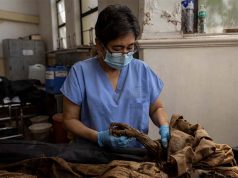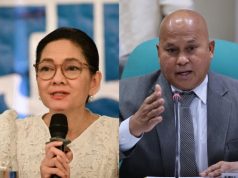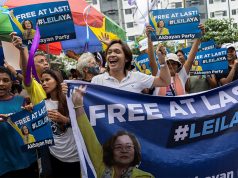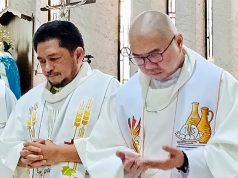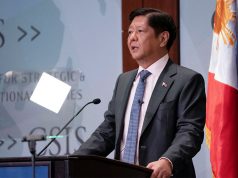MANILA, Philippines — Sen. Alan Peter Cayetano on Friday defended President Rodrigo Duterte’s campaign against illegal drugs anew, this time, before the United Nations Human Rights Council (UNHRC) in Geneva, Switzerland.
Cayetano, a staunch ally of Duterte, led the 16-member Philippine delegation that attended the UN’s Universal Periodic Review to present the state of human rights in the Philippines and dispel reports that killings linked to the drug war were state-sponsored.
“There are extrajudicial killings but it is not state-sponsored and we are trying our best to address it,” Cayetano, chairman of the Senate Committee on Foreign Relations told the UN body.
“The President does not tolerate state-sponsored extrajudicial killings and I want the human rights advocates to hear it from the mouth of the President just to clarify the issue,” he added, presenting videos of Duterte’s first SONA last July 25, 2016.
In the video, the President urged local law enforcement authorities to detain drug syndicates and kill them if they threatened the lives of police officers.
“The President said ‘put them (surrenderers) in jail and if they so wish ‘put them under the ground’ if they fight back or threaten the lives of police officers. Unfortunately in media — only ‘under the ground’ comes out,” Cayetano said.
He blamed “fake news based on alternative facts” being allegedly gobbled up by political foes of the President and local and foreign media as the causes of wrong impressions on the war on drugs campaign.
“It’s sad that the fake news based on alternative facts was gobbled up by the political foes of President Duterte locally, gobbled up by some local media which created a domino effect of the foreign media picking up from news report from Philippine news which alternated human rights groups. Unfortunately, they were getting the wrong info,” he added.
Not all EJKs
Cayetano also clarified how the term “extrajudicial killings” seemed to have changed since the previous administration.
“When President Duterte came in, what happened first was they changed the definition. Suddenly, during the Duterte administration, all killings were extrajudicial killings,” Cayetano said.
He also said that a total of 53,503 anti-illegal drug operations were conducted during Duterte’s 10-month stint while there were 93,197 operations conducted during the previous administration from January 2010 to June 2016.
“Are there more killings? Yes in the sense that there are more operations, there are more people killed during legitimate police operations,” Cayetano said.
“If you look at the percentage for every 100 operations about five fought back and were killed. If you look at present situation it’s still the same,” he added.
He further explained that this only meant that drug syndicates and other criminals could no longer act with impunity because authorities were working hard together to go after them.
Users are victims
Despite reports that drug users were also killed with impunity in the Philippines, Cayetano said that this was also false as users were treated as victims.
“In the same SONA the President clearly stated a massive effort for rehab centers and has sought the help of everyone from our local tycoons, from taxes and different countries to help build drug rehab centers,” Cayetano said.
Cayetano also explained the gravity of the illegal drug situation in the country noting that the country slowly turned into a “narco-state.”
“Drug pushers were not only helping politicians, judges. policemen. They were already infiltrating the political system by winning barangay captain from top positions below the presidency,” he added.
Bad cops punished
Cayetano also dispelled reports that rogue police officers responsible for killing drug suspects were allowed to operate freely noting that cops involved in killings were immediately investigated.
“Our police are being held more accountable. Any death resulting from police operations is automatically investigated,” Cayetano said.
He further said that the PNP had “opened up its doors” to the Commission on Human Rights to conduct their own probes despite how they also contributed to “spreading alternative facts.”
“The President was clear. If you abuse, you are worse than criminality,” he added, stressing that stricter guidelines have been in place to investigate erring cops.
The Universal Periodic Review (UPR happens every three to four years, where the states present their human rights records to the United Nations Human Rights Council.
The last UPR participated by the Philippines was in 2012.
WATCH NEWS5’S VIDEO REPORT:

